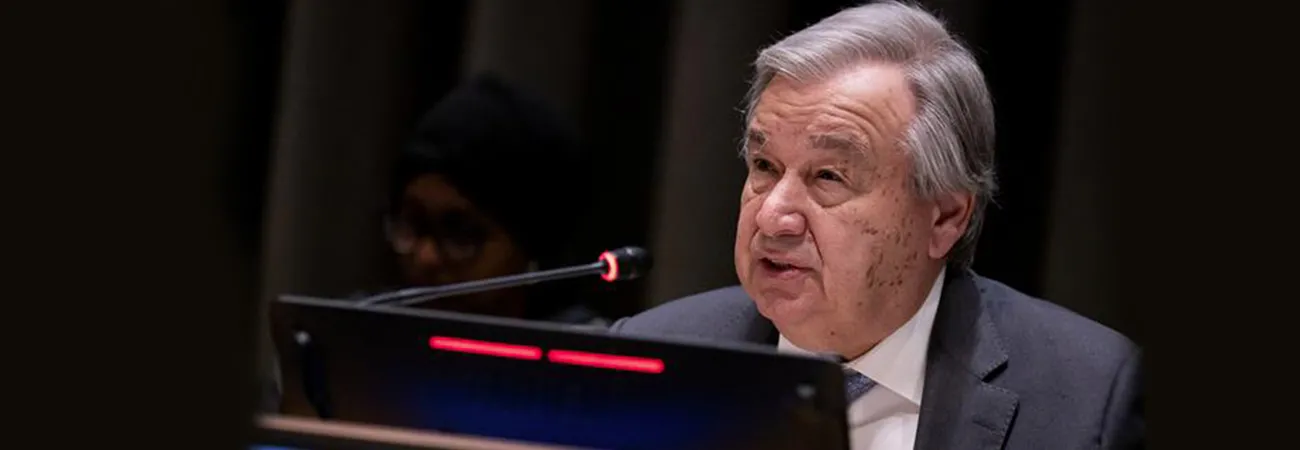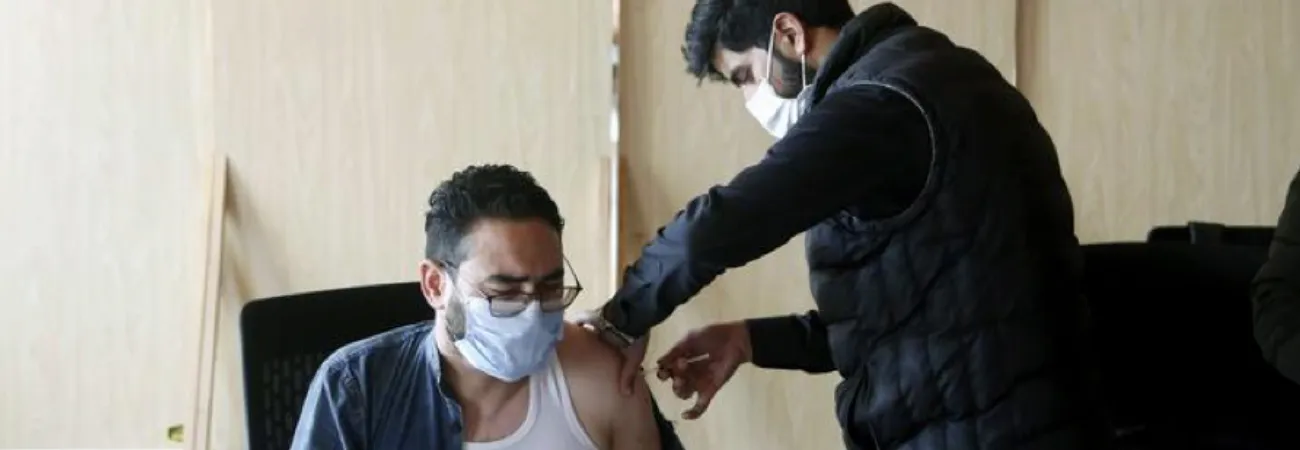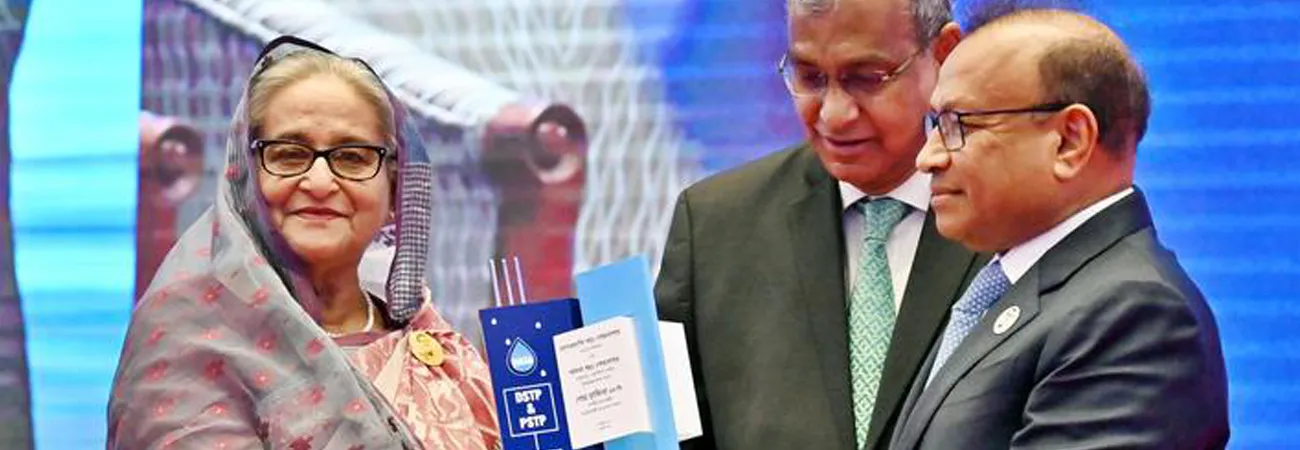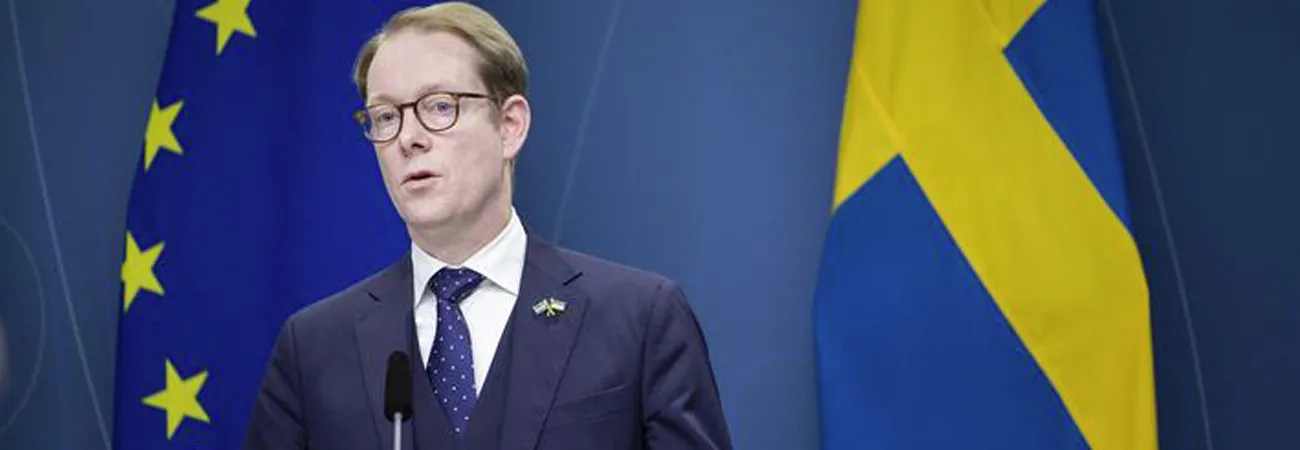XINHUA-PAKISTAN SERVICE
UNITED NATIONS, (Xinhua) -- UN Secretary-General Antonio Guterres on Thursday outlined his vision of multilateral efforts for peace and security as he launched a new policy brief, "A New Agenda for Peace."
"The post-Cold War period is over, and we are moving towards a new global order and a multipolar world," Guterres told UN member states while presenting the policy brief.
He noted that the new era is already marked by the highest level of geopolitical tensions and major power competition in decades, with many member states growing skeptical of whether the multilateral system is working for them.
The new policy brief outlines an extensive and ambitious set of recommendations that recognize the inter-linked nature of many of the challeges the world is facing, with the aim of achieving more effective multilateral action for peace.
Citing the first priority area in the brief, Guterres undercored the need for strong measures to bolster prevention at the global level, by addressing strategic risks and geopolitical divisions.
The brief calls on member states to urgently recommit to pursuing a world free of nuclear weapons, and to reinforce the global norms against their use and proliferation.
"We also need to step up preventive diplomacy at the global level in the face of growing fragmentation, and the potential emergence of geopolitical blocs with different trade rules, supply chains, currencies and Internets," said Guterres.
As the second priority area, the brief sets out a vision for preventing conflict and violence, and sustaining peace, with proposals including a paradigm for prevention that addresses all forms of violence, and prioritizing the links between sustainable development, climate action and peace.
"That requires a comprehensive view of the peace continuum and a holistic approach that identifies root causes and prevents the seeds of war from sprouting," Guterres said.
"We must accelerate the implementation of the 2030 Agenda, recognizing that prevention and sustainable development are interdependent and mutually reinforcing," he added.
Updating the approach to peace operations is the third priority area identified in the brief, which calls for a serious, broad-based reflection on the future of UN peacekeeping operations. It also urges the UN Security Council to authorize peace enforcement action by regional and sub-regional organizations.
According to Guterres, the fourth priority area is to prevent the weaponization of emerging domains and technologies, and promote responsible innovation.
The brief highlights the need for new national strategies to mitigate the peace and security implications of artificial intelligence (AI), and calls for a multilateral process to develop norms, rules and principles around military applications of AI.
Guterres said he welcomes calls to consider the creation of a new global body to mitigate the peace and security risks of AI while harnessing its benefits to accelerate sustainable development.
The fifth priority area is updating the collective security machinery to restore its legitimacy and effectiveness.
The policy brief recommends urgent reforms to the UN Security Council to make it more just and representative, and the democratization of its procedures. It also proposes revitalizing the work of the UN General Assembly and reforming the disarmament machinery, as well as enhancing the role of the UN Peacebuilding Commission.





